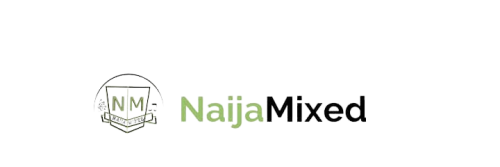
IF YOU ARE HERE TO KNOW HOW TO STUDY MEDICINE IN NIGERIA UNIVERSITY WITH LOW JAMB SCORE – THIS SECRET HAS BEEN UNIVAILED TODAY AFTER AGE LONG YEARS OF STUDENTS WHO ARE INTERESTED IN STUDYING MEDICINE BUT LACKING THE JAMB SCORES .
THERE ARE SO MANY MEDICAL COURSES , HOWEVER MOST JAMBITE DUE TO INADEQUATE ACCESS TO INFORMATION MIGHT GET A PARTICULAR SCORE AND BECAUSE IT DOESNT MEET THE REQUIREMENT OF MEDICINE AND SURGERY IN A PARTICULAR SCHOOL, THEY RETURN BACK TO THEIR SHELLS WAITING FOR THE NEXT SESSION TO TRY THEIR LUCKS AS THEY CALL IT ♂️.
If a student has a low JAMB score, there are still several medical courses they can consider studying in Nigeria. While some medical courses may require higher JAMB scores for admission into top universities, there are other related healthcare fields that may have lower entry requirements. Here are some medical courses and related fields that students with low JAMB scores can consider in Nigeria:
HOW TO STUDY MEDICINE IN NIGERIA UNIVERSITY WITH LOW JAMB SCORE (SECRET)
- Medical Laboratory Science: This is a healthcare profession involved in the diagnosis, treatment, and prevention of diseases through the use of clinical laboratory tests.
- Physiotherapy: Physiotherapists help people affected by injury, illness, or disability through movement and exercise, manual therapy, education, and advice.
- Radiography: Radiographers are healthcare professionals who specialize in the use of imaging technology, such as X-rays, CT scans, and MRI scans, to diagnose and treat diseases and injuries.
- Pharmacy: Pharmacists are experts in the use of medications. They dispense prescription medications to patients and offer expertise in the safe use of prescriptions.
- Nursing: Nursing is a noble profession focused on caring for individuals, families, and communities to maintain or attain optimal health and quality of life.
- Health Education: Health educators promote, maintain, and improve individual and community health by assisting individuals and communities to adopt healthy behaviors.
- Dental Therapy/Dental Technology: Dental therapists work with dentists to provide dental care and treatment to patients. Dental technologists work in dental laboratories to create dental prostheses and appliances.
- Medical Imaging Technology: Medical imaging technologists operate imaging equipment to produce images of the body for diagnostic purposes, such as X-rays, CT scans, and ultrasounds.
JAMB CUT OFF MARKS FOR THE COURSES LISTED ABOVE MIGHT BE YOUR NEXT HEADACHE, DO NOT WORRY WEVE GOT YOU COVERED
The cutoff marks for medical courses in Nigerian universities can vary depending on several factors, including the university, the competitiveness of the course, and the number of available spaces. However, I can provide you with a general idea of the cutoff marks for some of the medical courses listed earlier:
- Medical Laboratory Science: Cutoff marks for Medical Laboratory Science programs in Nigerian universities typically range from around 180 to 220 and above, depending on the university and the competitiveness of the program.
- Physiotherapy: Cutoff marks for Physiotherapy programs usually fall within the range of 200 to 250 and above, depending on the university and the number of available spaces.
- Radiography: Radiography programs may have cutoff marks ranging from approximately 200 to 250 and above, depending on the university and program competitiveness.
- Pharmacy: Pharmacy programs generally have higher cutoff marks compared to other medical courses, often ranging from around 250 to 300 and above, depending on the university and program competitiveness.
- Nursing: Cutoff marks for Nursing programs can vary widely but typically range from around 200 to 250 and above, depending on the university and the number of available spaces.
- Health Education: Cutoff marks for Health Education programs may vary, but they generally fall within the range of approximately 180 to 220 and above, depending on the university.
- Dental Therapy/Dental Technology: Cutoff marks for Dental Therapy or Dental Technology programs can range from around 200 to 250 and above, depending on the university and program competitiveness.
- Medical Imaging Technology: Cutoff marks for Medical Imaging Technology programs may vary but generally fall within the range of approximately 180 to 220 and above, depending on the university.
These cutoff marks are approximate and may vary from year to year and from one university to another. It’s essential to check the specific admission requirements and cutoff marks for each university and program you’re interested in applying to. Additionally, universities may consider other factors such as post-UTME scores, O’level results, and other criteria in their admission process.
































